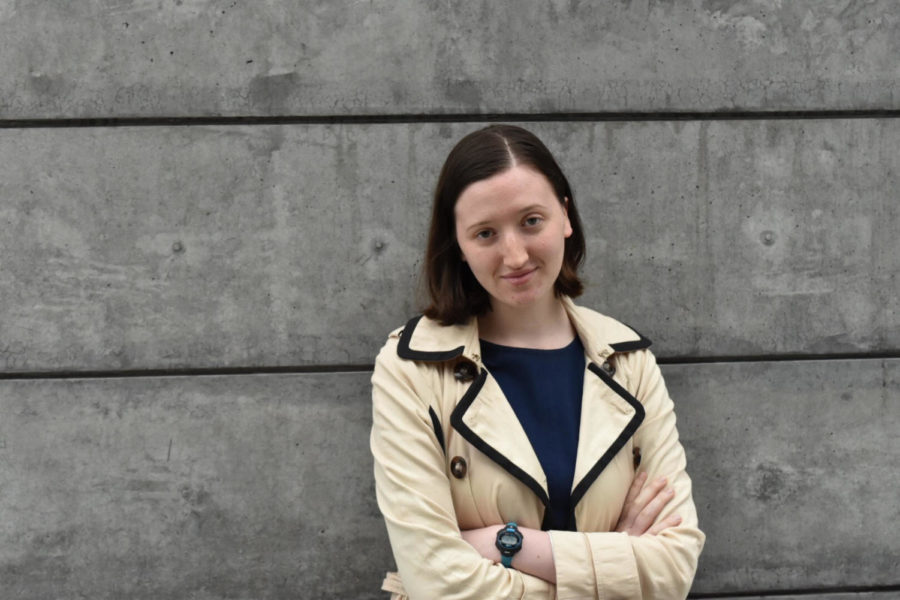Lowell student advocates for a lower voting age
Ella Yitzhaki, a senior at Lowell High School, poses for a photo. Photo credit: Callum Yeaman.
Ella Yitzhaki, a 17-year-old senior at Lowell High School, is not your average student. Since the 2012 presidential race, when she was only ten years old, politics have been Yitzhaki’s voice. Yitzhaki has met with prominent legislators including congresswoman Nancy Pelosi, whom she regards as her inspiration, and she is passionate about debate and Model UN. One day, Yitzhaki aspires to become a campaign strategist or speechwriter for a prominent political candidate, but for now, her focus is on youth voting laws.
Though Yitzhaki has dedicated much of her life to politics, at 17 years old, she is not eligible to vote in the primaries for the 2020 presidential election, despite turning 18 before the general election begins. There are 25 states in America that already allow 17-year-olds to vote in Presidential Primary elections.
“I hold my state to a higher standard because we are the Golden State; we are the greatest state in the country,” Yitzhaki said. She realized that something needed to change, because “[California is] a progressive state that is supposed to encourage people to vote—not just young people—but all people,” she said.
Yitzhaki is not the only 17-year-old struggling with California’s Youth Voting laws. “I think the primaries are especially important for voters because that’s when the democratic process really shines through,” said Ben Galloway ‘20, who would be unable to vote during the 2020 primaries under California’s current laws, “it’s important for people who are going to be able to vote during the general election to be eligible to vote in the Primary election.”
Allowing 17-year-olds to vote in the primary election has become Yitzhaki’s mission. She formed an advocacy committee and met with California State Assembly members Kansen Chu, Phil Ting, and Kevin Mullin in order to discuss their policies on youth voting. After months of hard work helping young voters get registered for voting, Yitzhaki was invited to testify at the California State Capitol.
Her testimony helped Assemblyman Mullin advocate for a new amendment called Youth Voting ACA 4, which was eventually passed by the State Assembly in August 2019. The proposed amendment would allow 17-year-olds who would be 18 during the general election to vote in Primary elections. ACA 4 will now travel to the State Senate, where Yitzhaki hopes to testify again. If passed, the proposition would end up on the November 2020 ballot and would be implemented for the 2024 election.
A common counterargument against ACA 4 is that 17 year olds do not yet possess the mental maturity to partake in the voting process. However, Yitzhaki does not buy into this idea. “17-year-olds are going to be contributing to the workforce and economy in just a few months,” said Yitzhaki. “We have an experience that is valid. Sure, we might not know all of the intricacies of health care, but so don’t many other adults and voters in this country.”
If you are interested in learning more about ACA 4 and youth voting, you can learn about the proposed amendment at kevinmullin.com, or reach Yitzhaki with questions at ella.yitz@gmail.com.


